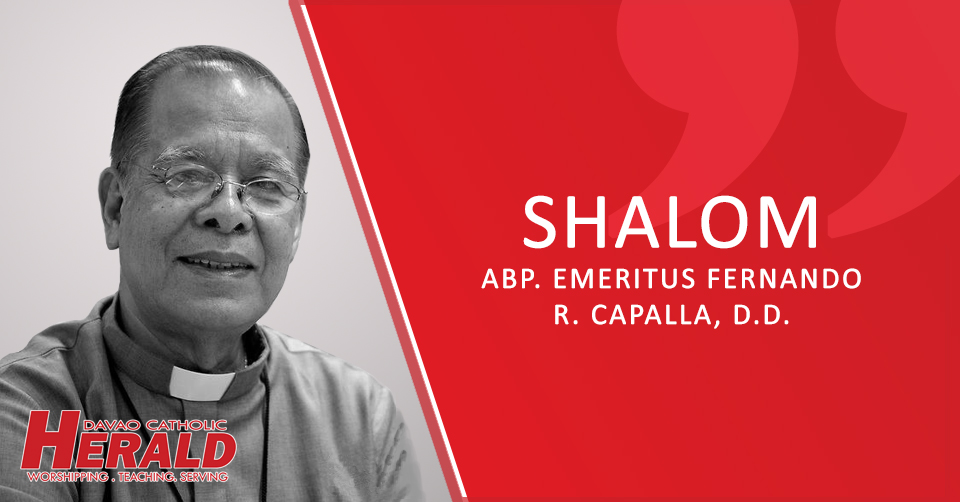
Sharing of faith experience as form of dialogue
In the Bishops-Ulama Conference (BUC) we have what may be called a Tripartite Faith Experience. Tripartite refers to the Catholic Faith of Christians who are Catholic, to the Islamic Faith of believers who are Muslims, and to the Protestant Faith of Christian believers who are Protestants.
We respect each other’s faith as we engage in interreligious dialogue. The bottom line for us of dialogue is human friendship, not change of faith and religion.
Human friendship or fraternal relationship as brothers and sisters is enhanced by the sharing of our personal faith in the God whom we call with several names. This can happen in the four levels of dialogue which we have experienced.
These four levels or forms of dialogue are, 1) dialogue of life, 2) dialogue of collaboration, 3) dialogue of doctrinal exchange, and 4) dialogue of faith experience sharing.
It is in the fourth level that the deepening of one’s faith happens, and the emergence of a spirituality of human fraternity and social friendship develops. In this level dialogue is carried out in the context of prayer, meditation and contemplation. This spiritual grounding needs to be well planned mutually anď systematically.
The systematic principle and guideline of implementing all plans are found in the important and historic documents that came out in February and October this year. Signed by Pope Francis and Grand Imam Ah Mad El-Tayebb in Abu Dhabi on February 4, the document is called Human Fraternity for World Peace and Living Together (HFWPLT).
The other is the 3rd encyclical letter of Pope Francis entitled FRATELLI TUTTI on Fraternity and Social Friendship and signed on 4 October 2020 in Assisi on the Feast of Saint Francis of Assisi. This is considered as continuation of the Abu Dhabi document.
The two eminent world promoters of Human Fraternity and Social Friendship end their historic agreement saying, “In the name of all persons of goodwill present in every part of the world, [we] declare the adoption of a culture of dialogue as the path; mutual cooperation as the code of conduct; reciprocal understanding as the method and standard.”


No Comments